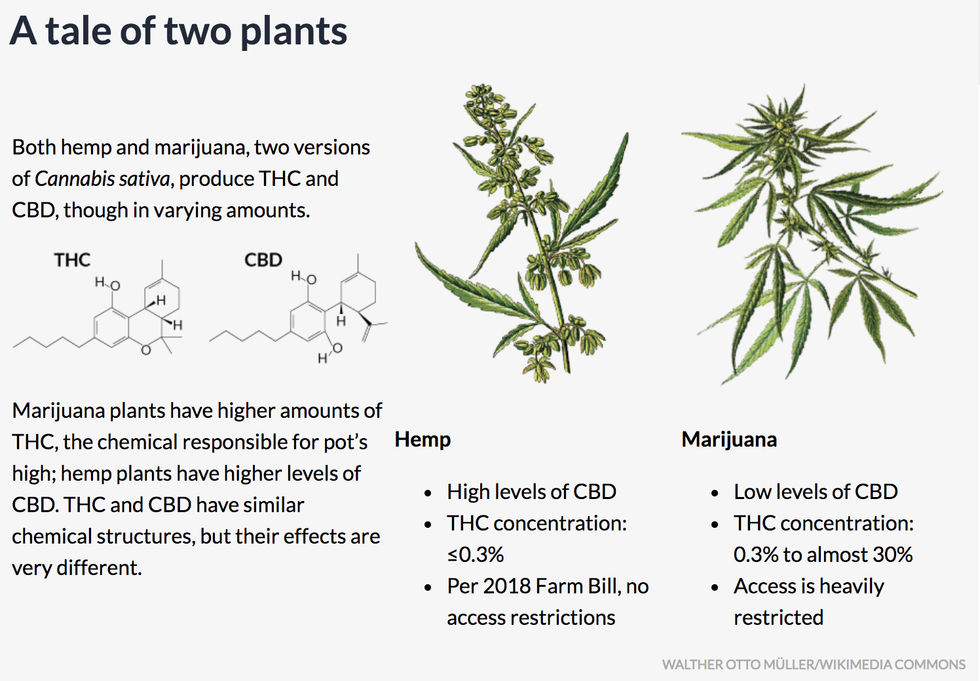CBD was legalized in June 2018. It is known to relieve anxiety, pain, and several other conditions in users. CBD has been seen everywhere lately — in skin care, coffee, and even pet treats.
Dr. Scott Gottlieb put in a statement on June 25:
"Today, the FDA approved a purified form of the drug cannabidiol (CBD). This is one of more than 80 active chemicals in marijuana. The new product was approved to treat seizures associated with two rare, severe forms of epilepsy in patients two years of age and older."
It's no surprise that on March 27th companies, such as CVS Pharmacy, started making plans to sell it in their stores.
But, before you buy and decide to use it, here are a few things you should know.
What is CDB?

CBD stands for Cannabidiol and comes from the hemp plant, a relative of marijuana and a member of the cannabis family. However, it does not contain the chemical THC, which is the part of marijuana that makes it psychoactive. In other words, CBD doesn't cause a high when it is used.
CDB oil first came around as a way to treat seizures of both Dravet syndrome and Lennox-Gastaut syndrome (LGS), which typically don't respond to anti-seizure medications. In some cases, CBD did not just reduce seizures but stopped the seizures altogether. That's why the FDA approved a new drug, Epidiolex, last December.
CBD oil research currently indicates that it has many benefits, but it's still essential to approach it with an open, yet realistic, mindset.
Those who have used it say that there are numerous benefits of CBD oil. Some of these include a reduction in anxiety, depression, PTSD, MS, and inflammation as just some of the benefits to humans and their health. However, many professionals say more research needs to be done.
CBD can be taken in many different forms and there are several kinds to choose from, so make sure to do research on the type you're getting and where it comes from.
Here are some dosages based on the research that has been done so far.
- Cancer patient/loss of appetite: 2.5 mg THC (oral), with or without 1 mg CBD for six weeks.
- Prolonged pain: 2.5-20 mg of CBD [with or without THC] (orally).
- Schizophrenia: 40 to 1280 mg of CBD per day.
- Sleeping disorders: 40 mg to 160 mg of CBD (orally).
- Symptoms of Multiple Sclerosis (MS): Extracts of cannabis plants containing 2.5 to 120 mg of a combination of THC / CBD daily for 2-15 weeks. Patients typically use eight sprays in three hours, with a maximum of 48 sprays per 24-hour period.
Other factors may be included in determining the exact amount a specific person many need. As always consult with a healthcare professional before regularly taking any type of medication, whether it's natural or otherwise.
It is attainable legally, in most states, and has recently been allowed to be sold in drugstores in several states - including Kentucky, Alabama, Colorado, Indiana, Maryland, Illinois, Tennessee, and California.
Of course, there's still more research that needs to be done. But many believe that it could be beneficial despite the limited research.



















